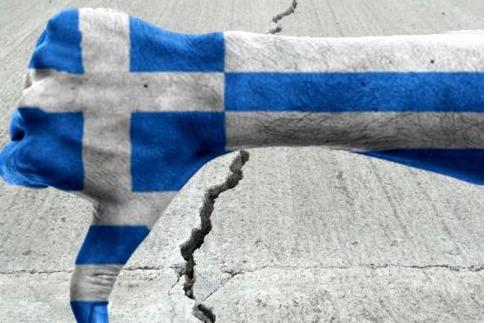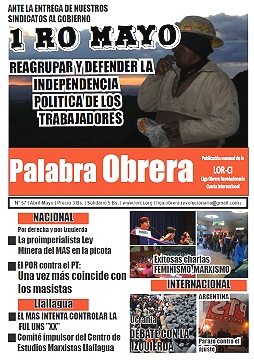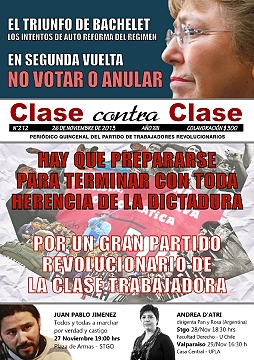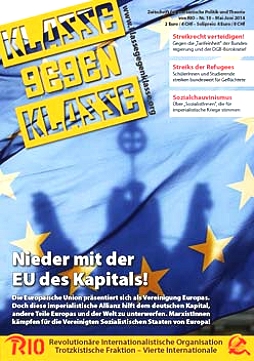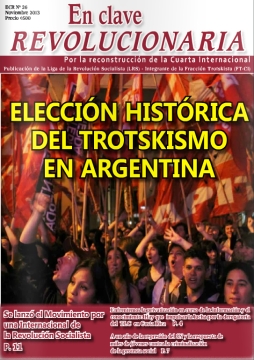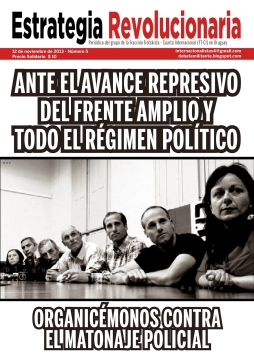Regional elections in Venezuela, in Chávez’ absence
A victory for chavismo, in the presence of political uncertainty
03/01/2013
By Milton D’León, LTS
In the context of the uncertainty created by the critical state of Chávez’ health, regional elections were held throughout the country, where new governors and legislative councils of each state were elected, elections that were marked by a high rate of abstention. As is now public knowledge, chavismo managed to impose itself in 20 of the 23 governorships of the country, in addition to obtaining the majority in the legislative councils of all the states. These results signify the recovery for chavismo of five of the eight states that were in the hands of the opposition that opposes Chávez from the right, that could only keep the states of Amazonas, Lara and Miranda. If we keep in mind that both Amazonas and Lara were in the hands of governors that come from chavismo and switched sides, then the hard group of the opposition ends up by being concentrated in the state of Miranda, that is re-electing Capriles Radonski. The opposition is losing key states like Zulia, Carabobo, Táchira, Nueva Esparta (Margarita), that were considered its political bastions and a platform for its political expansion, just as chavismo is also putting back in its fold the state of Cojedes, whose governor up until recently had moved away from chavismo.
Although these elections were characterized by the high rate of abstention (46.16%), compared with the massive participation in the presidential election (80%), we should explain that this abstention rate is within the historical parameters of the country for regional elections, that is, when the candidacy of the President is not in play. If it is compared with the regional processes since 1989, this year’s abstention rate is one of the lowest, since the best index of participation in some elections of these characteristics was recorded four years ago, when 65% of the voters went to the polls. We believe then that abstention is the constant in regional events in the country. Furthermore, we should highlight the approximately 309,000 spoiled ballots.
The importance of these regional elections
The character of these regional elections changed drastically when they were intersected by the crucial political stage the country entered in view of a fatal outcome for Chávez, or the impossibility of his taking office as President this coming January 10, and, therefore, how the different forces were defining their positions, both the supporters of the government and those of the opposition. In this context, all these groups were taking their chances with a political repositioning in the new situation that is unavoidably opening up, full of political uncertainty without Chávez. For chavismo, this has to do with a big victory, when it is not known if Chávez will take office in January, since the situation could be affected by a traumatic prospect. For that reason, Chávez’ state of health was present in these elections. Government supporters emphatically called for voting for the President’s health, which, without a doubt, greatly influenced the favorable result, that repositions chavismo, in front of the new stage that is opening up in the country, especially in view of post-chavismo (understood as the passage to a new form of political power), and it puts current Vice President Nicolás Maduro, designated by Chávez as his successor, in better conditions, in an early election.
What saved the right-wing from a more unfavorable defeat, is the fact that it is managing to keep Miranda state, and it is saving Capriles himself from being outside of the political scene as an acceptable presidential candidate, which would have led the opposition to a greater crisis, in not having any candidate with chances of being able to confront Maduro in early elections. In this way, the opposition is keeping a candidate that already confronted Chávez with a considerable abundance of votes. Capriles’ insistence, in his speech on the night of October 17, despite feeling the bitter taste of defeat because of what was totally lost, that “that change is very close, one can feel it in the air, you can breathe it,” was not accidental. But the right-wing candidate is, unquestionably, entering the electoral race, against Nicolás Maduro, badly, even more so, if Maduro is supported by Chávez, alive, if Chávez does not take office, but remains in more stable conditions of his terminal illness, that will allow him to participate somewhat in the campaign, to guarantee victory for his favored candidate.
Chavismo won, but the outlook is uncertain
But, over and above this entire scenario of chavismo’s victory, and its improved situation, stability in the country is far from being guaranteed. If Chávez no longer had the same chances compared to when he was at his political high point, because of his phase of general decline, with a prospect of his political absence, it makes the situation more unpredictable, since Chávez could make situations appear that Nicolás Maduro could not, even more so, since entering an economic crisis, that increased the degree of political instability, would be a variable that could modify any planned outline of post-chavismo. A more fluid situation is being experienced in the country then, still in the absence of class struggle or economic crisis, because Chávez’ role of containment is still very large, and his absence would open up a crisis, since there would be no one who could play that role, complicating the road towards new forms of political control in a post-chavista stage.
In this context, the working men and women, beside all the exploited men and women of the country, will have to prepare to fight for a class solution, by struggling for political independence, that will allow opening the way for a party that belongs to the workers, based on their class organizations, and that will lay the foundations for the construction of a revolutionary and internationalist party of the workers in the struggle for a government of the workers and the poor.
December 19, 2012











